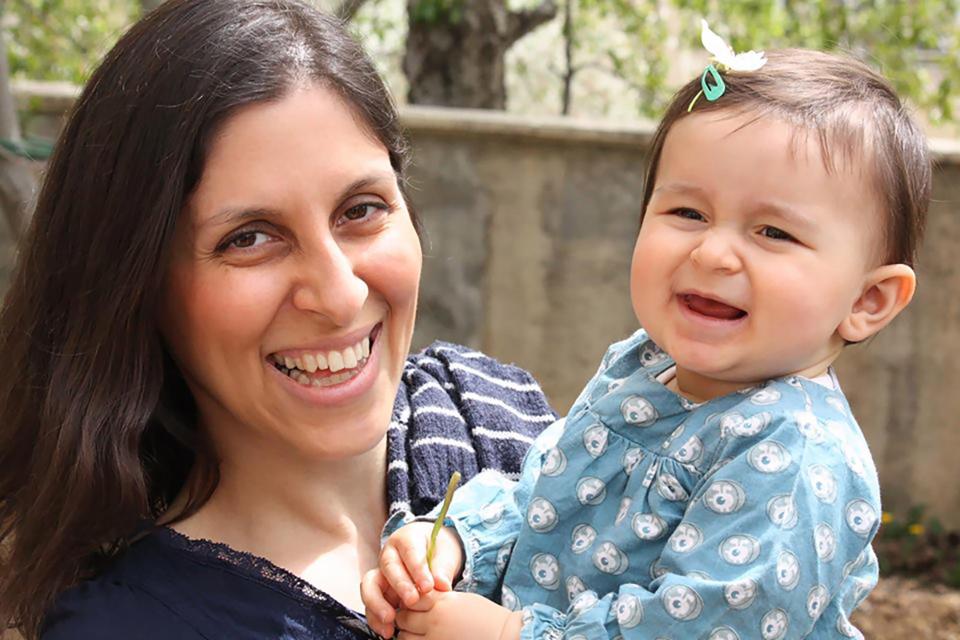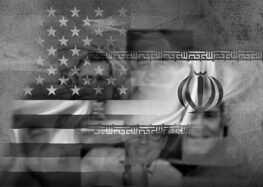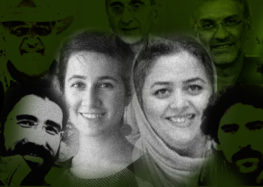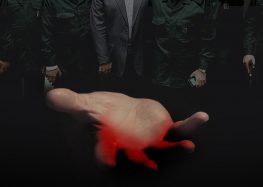Nazanin Zaghari-Ratcliffe’s Case Re-Opened Ahead of UK Foreign Secretary’s Meeting With Iranian Officials

The Mother of a Toddler Has Been Serving a Five-Year Prison Sentence Since 2016
Already serving a five-year prison sentence on trumped-up espionage charges in Tehran’s Evin Prison, Iranian British dual national Nazanin Zaghari-Ratcliffe is now facing the prospect of more time behind bars.
“The Free Nazanin campaign is disappointed to announce that Nazanin faces going back to court – with a decision expected next week,” said the campaign in a statement on May 15, 2018.
“The resurrection of the court case comes ahead of the foreign secretary’s trip to Brussels today [May 15] to meet with [Iranian] Foreign Minister [Javad] Zarif and European colleagues,” added the statement.
Johnson and other European officials met with an Iranian delegation including Zarif on May 15 but it was not immediately clear whether Johnson raised Zaghari-Ratcliffe’s case with his Iranian counterpart.
In April, the Iranian government had told (paragraph 54) the UN’s Human Rights Council that there is no new case against Zaghari-Ratcliffe, who has been imprisoned in Iran since April 2016.
“As for the allegation on the opening of a new charge against her, the matter was investigated through the relevant authorities, which revealed that there were no new charges or cases filed against her,” said Iran in its reply to the council’s list concerns about human rights issues in the country.
But on May 11, 2018, Gholam-Hossein Esmaili, the hardline chief prosecutor of Tehran Province, announced that Zaghari-Ratcliffe would face new charges without providing any new details.
The announcement came three days after US President Donald Trump announced he would be pulling the United States out of the Iranian nuclear deal signed by Iran and world powers in July 2015 and re-imposing new sanctions aimed at weakening the Islamic Republic.
“I have no clue why they have started all this nonsense again,” Zaghari-Ratcliffe told her husband on May 14 according to the Free Nazanin campaign.
She added: “They know Boris is coming. Please take me out of this, please. My parents have had enough. I want my daughter back. She needs both of us. So tell the world. Enough of this nonsense.”
A researcher for the Thomson Reuters Foundation in London, the Islamic Revolutionary Guard Corps’ (IRGC’s) Intelligence Organization arrested Zaghari-Ratcliffe in Tehran in April 2016 while she was in Tehran’s international airport waiting for her flight back home with her two-year-old daughter after visiting her parents in Iran.
According to Iranian law, she has been eligible for early release since November 2017.
“The case against Nazanin is part of a pattern,” said the Free Nazanin campaign’s statement.
Continued the statement: “A number of more British citizens have been arrested in Iran recently – including three in the last month. These arrests follow the distant scheduling in 2019 of the next hearing of a secret UK court hearing arbitrating between the UK and Iran over a UK arms debt to Iran. This had seemed close to solution during the Foreign Secretary’s last visit to Iran. We hope that the foreign secretary’s visit brings success second time around.”
In a previous statement published on February 22, 2018, the Free Nazanin campaign revealed that Zaghari-Ratcliffe has been kept in prison because of a governmental dispute over the interest rate of an old debt owed by the UK to Iran.
“So there is no ambiguity on the family’s perspective, in either Iran or the UK, putting Nazanin and Gabriella [daughter] under armed guard house arrest while negotiations are extended is not progress,” said her husband, Richard Ratcliffe. “It is not in their interests, even if it is more plausibly in the interests of both governments.”
Ratcliffe added that Judge Abbasi, the Judge of Judicial Affairs in Evin Prison, told Zaghari-Ratcliffe that the British government said it would pay the debt but there is still a dispute over calculating the interest rate. The judge added that the Iranian Foreign Ministry and UK officials are finalizing the calculation of the interest owed on the debt.
The UK reportedly owes 300 million pounds to Iran in a debt stemming from the Iranian government’s purchase of hundreds of British Chieftain tanks in 1976 that were never delivered.
“I think this carries a risk of negotiation narcissism – both governments wrapped up in the bubble of negotiations over international affairs, risking an atrophy of real lives,” said Ratcliffe.
In April 2018, the IRGC arrested Abbas Edalat, a London-based academic and antiwar activist with dual Iranian and British citizenship.
At least one other Iranian British dual national, Kamal Foroughi, has been imprisoned in Iran since 2011 after being arrested by the IRGC. He is also eligible for early release.
According to Reuters, the IRGC has arrested at least 30 dual nationals since the signing of the Iranian nuclear deal in July 2015.






